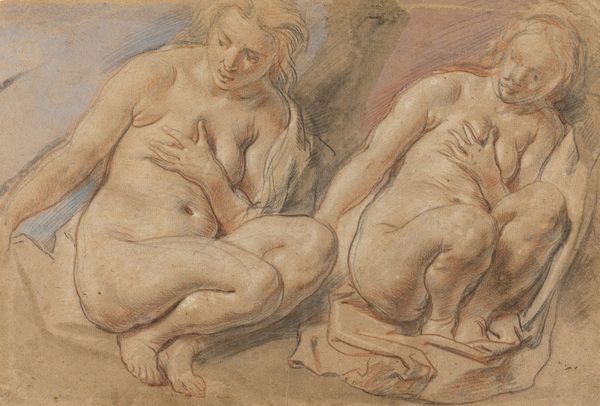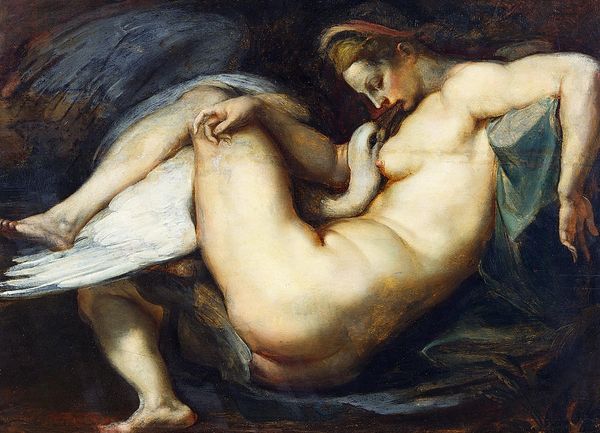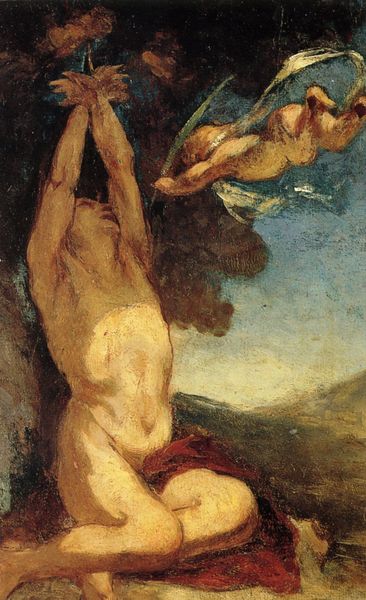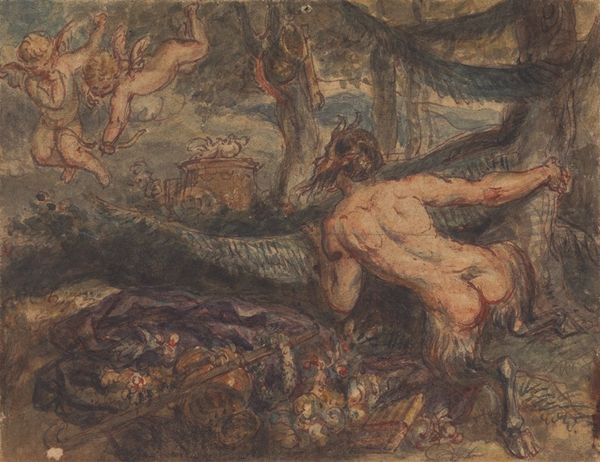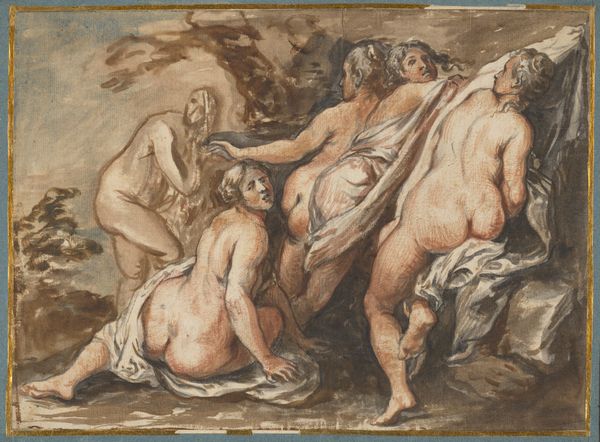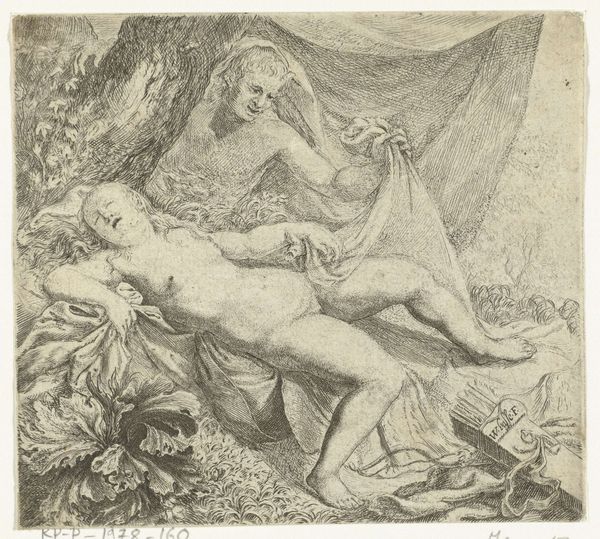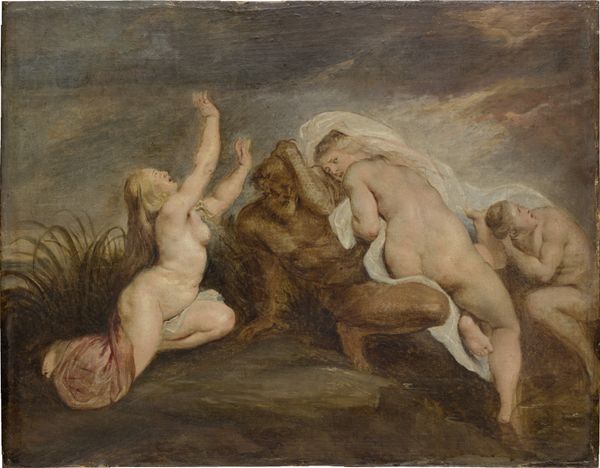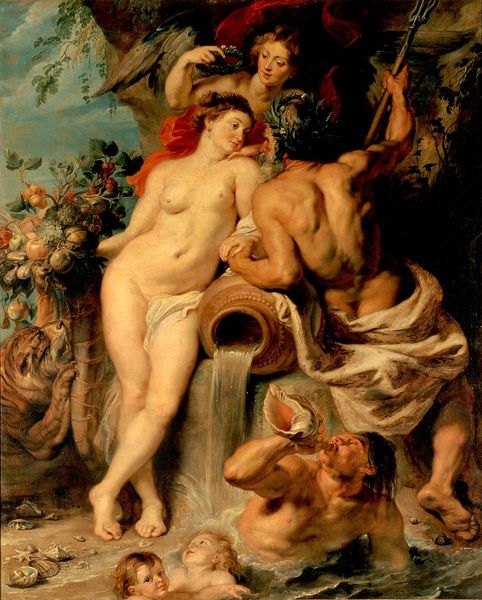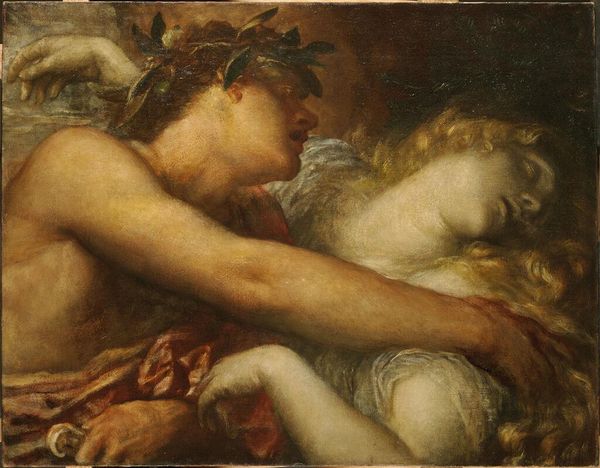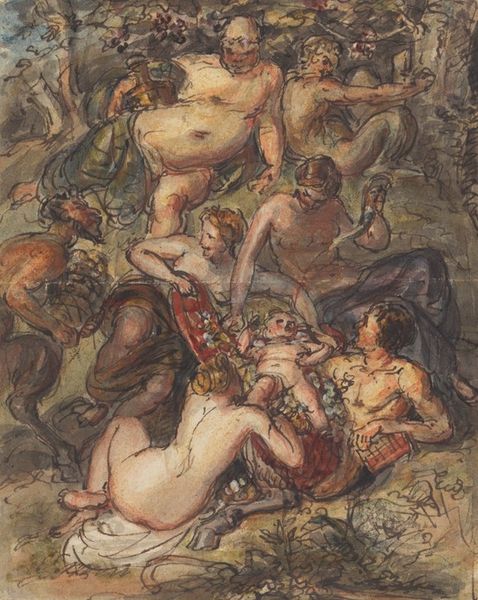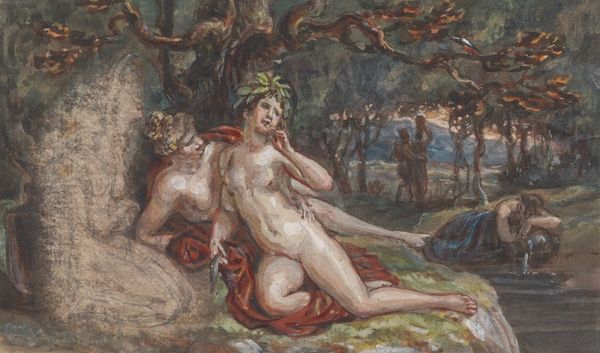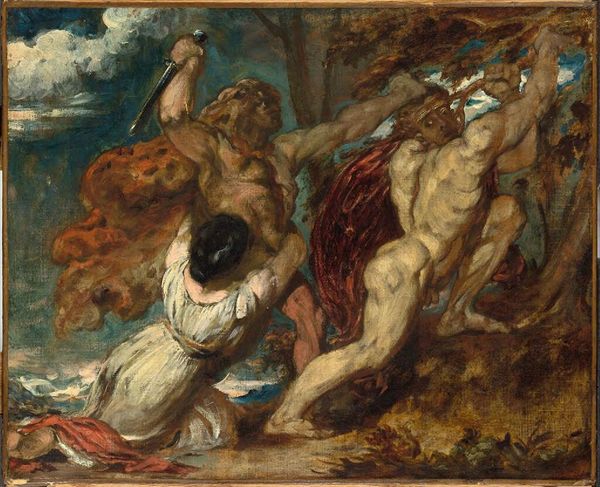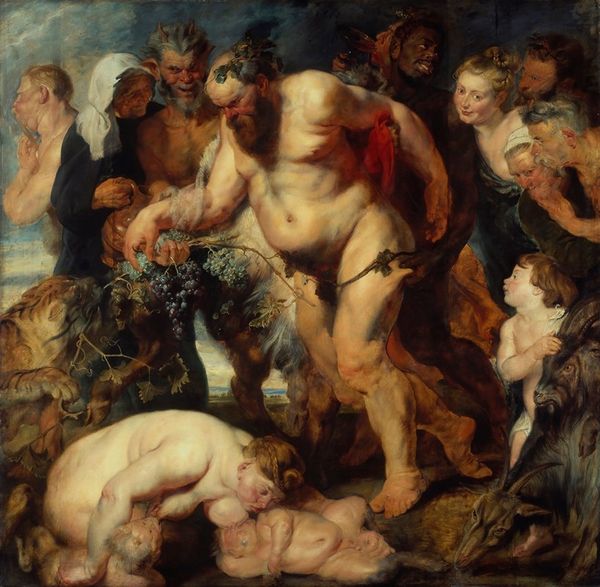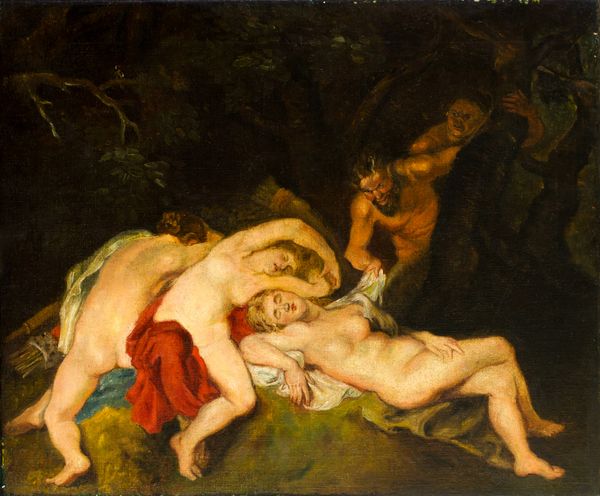
drawing, oil-paint
#
drawing
#
oil-paint
#
landscape
#
charcoal drawing
#
figuration
#
oil painting
#
romanticism
#
portrait drawing
#
genre-painting
#
nude
Copyright: Public Domain: Artvee
Théodore Géricault made this watercolor painting, "Venus and Cupid in a Landscape," in France, after Annibale Carracci. Géricault’s artistic production unfolded during a transitional moment. In the wake of the French Revolution, artists grappled with how they could represent the social world around them. Here, he looks back to the Italian Renaissance, imitating its idealized forms. Yet this choice can be understood in relation to the institutions of art in France, where the Academy promoted the classical tradition. In this way, Géricault was negotiating the demands of a conservative establishment. He wasn't alone in feeling pressured by the Academy. Many artists would begin to experiment with new aesthetic forms in the 19th century, questioning traditional notions of beauty. As art historians, we can use sources like exhibition reviews, artists’ letters, and institutional records to understand how artists such as Géricault were situated within specific social and cultural contexts.
Comments
No comments
Be the first to comment and join the conversation on the ultimate creative platform.
